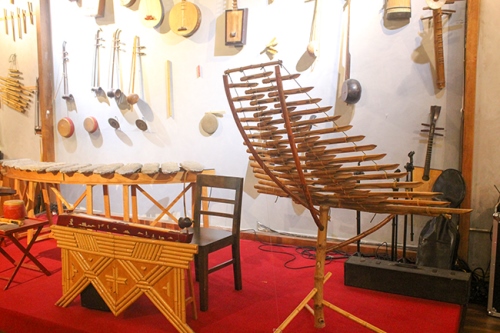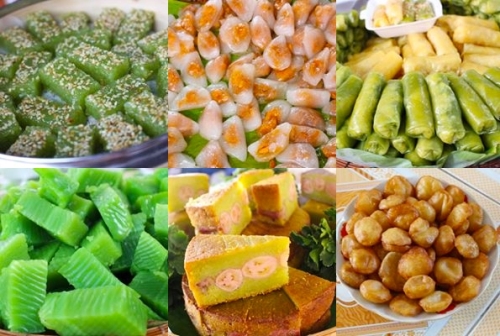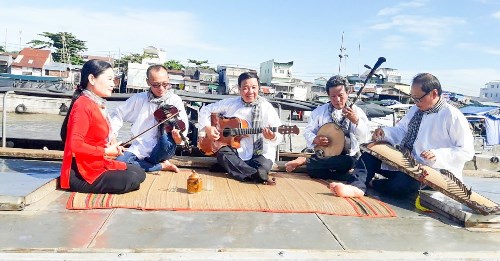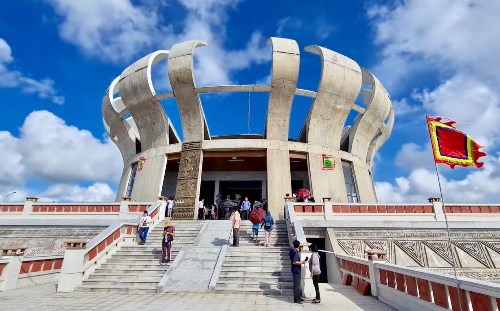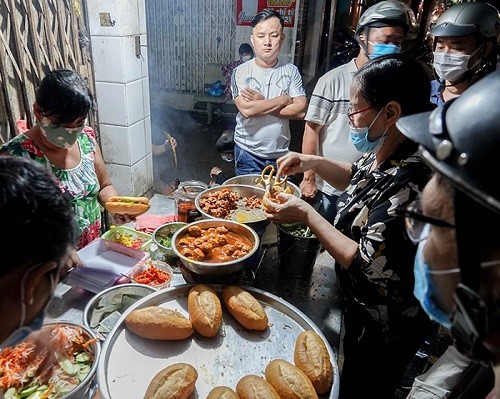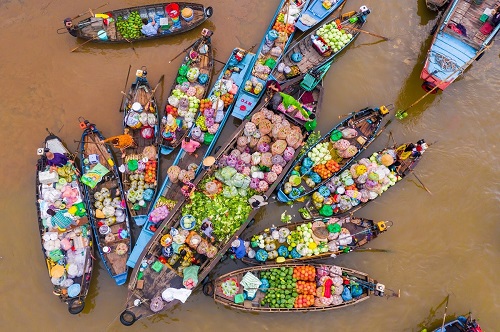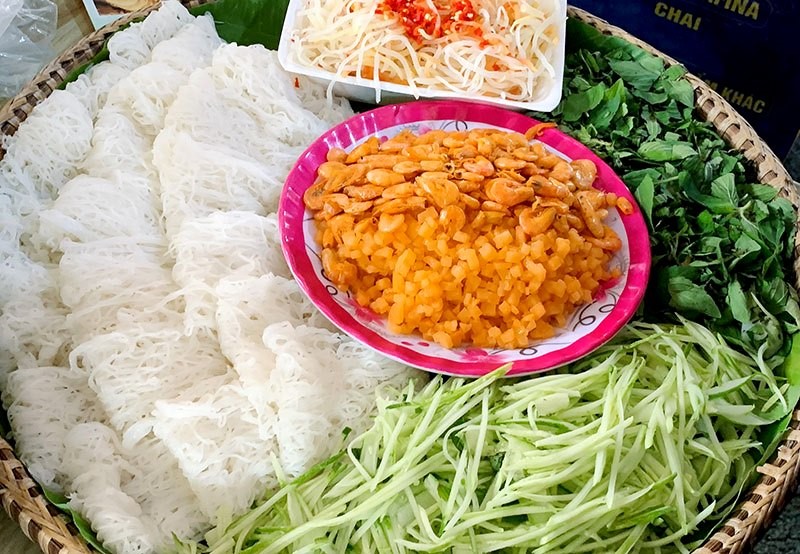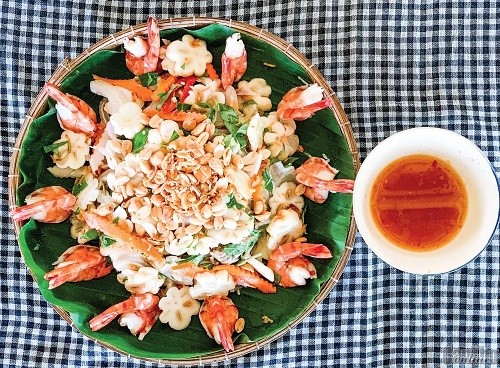
Overcoming difficulties to adapt to the COVID-19 pandemic
The cluster of cooperation and association for tourism development in the Mekong Delta has 7 provinces and city namely Can Tho city, An Giang, Kien Giang, Soc Trang, Hau Giang, Ca Mau, and Bac Lieu. In 2021, these provinces and city welcomed 11.8 million visitors, only reaching 53.6% compared to 2020. The total revenue reached nearly 9,371 billion VND, reaching 48.4% over the previous year. The decrease in the number of visitors and revenue is due to the negative impact of the COVID-19 pandemic. Accordingly, provinces and city in the Mekong Delta could only receive tourists (mostly domestic tourists) in the first two quarters of 2021.
Mr. Tran Hieu Hung, Director of the Department of Culture, Sports and Tourism of Ca Mau province, said: “The majority of visitors come to Ca Mau in the first 5 months of the year, especially through the series of events of Ca Mau - Destination 2021. However, when the pandemic broke out, many activities had to be suspended. Consequently, the tourism of Ca Mau province lost about 50% of its revenue. Travel agencies are almost closed, restaurants and hotels have to limit their operations”. Mr. Nguyen Minh Tuan, Deputy Director of the Department of Culture, Sports and Tourism of Can Tho City, informed us: “We are all stunned when our plans and events have to be canceled or postponed due to the outbreak of COVID-19 pandemic. Consequently, that disrupts our operations. Furthermore, businesses and workers in Can Tho city face a lot of difficulties”.
Facing this obstacle, localities have also developed and implemented many solutions for tourism activities to adapt to COVID-19, such as businesses transition to remote work, enhancing digital transformation, building new products, coordinating to implement support policies for businesses and workers that are facing difficulties, sharing effective tourism models adapting to COVID-19, etc. Ms. Nguyen Thi Ly, Deputy Director of the Department of Culture, Sports and Tourism of Hau province Giang, shared: “We have made efforts to build connecting tours between provinces and cities, preparing joint activities and events.
However, due to the negative effects of the COVID-19 pandemic, many activities had to be suspended. Therefore, we rethink efficient strategies for remote work. At the same time, we accelerate tourism product development and improve product quality. Additionally, we diversify forms of propaganda and apply effective marketing strategies like exploiting social networks to promote tourism. Meanwhile, Ms. Quang Xuan Lua, Deputy Director of the Department of Tourism of Kien Giang province, said: “Tourism activities in Kien Giang have restarted with many events. In particular, there are very positive signs in Phu Quoc city when we are allowed to welcome international guests from November. On this basis, we have also built many new products and promotional tours to attract customers”.
Orientations and solutions for 2022
Although the tourism sector has resumed its activities since October, localities still face many new challenges. For example, the source of tourists is no longer available. The market is broken. Many businesses have not yet resumed operations. There is a serious shortage of human resources, etc.
Mr. Tran Hieu Hung, Director of the Department of Culture, Sports and Tourism of Ca Mau province, expressed his concern: “Our main market is Hanoi and the northern provinces. Travel agencies act as the focal point. However, at present, very few travel agencies work. In addition, overlaps in regulations and traffic difficulties push tourists away from Ca Mau. We are open but no customers come. I think that our linkage should go into detail to support each other to build new, separate products and form a unique product chain. On the other hand, it is also necessary to focus on promoting the key markets in Hanoi, the Central Highlands and the Central region to achieve good results”. Sharing the same opinion, Ms. Tran Thi Lan Phuong, Director of the Department of Culture, Information, Sports and Tourism of Bac Lieu province, said: “On the basis of cooperation and linkage of the Western cluster, we can share information and discuss many solutions to overcome difficulties together. Moreover, we can promote the strengths of each locality in terms of tourism. In addition to building different products, I think there should be a common coordination mechanism to improve the efficiency of tourism activities”.

The Famtrip team of Can Tho, Vinh Long and Ca Mau in the connection and cooperation between provinces and cities program in 2020.
Actually, localities in the Mekong Delta have also actively built many new products, tour routes. Specifically, Hau Giang is exploiting Xa No canal, Lung Ngoc Hoang Nature Reserve to create separate and unique products. At the same time, Hau Giang develops a program to link tourist attractions along Can Tho river and Xa No canal to form a new route for river tourism.
The city of Can Tho focuses on exploiting the strengths of river tourism associated with Cai Rang floating market, MICE tourism (meetings, incentives, conferences, and events). Meanwhile, Kien Giang exploits sea and island tourism. Bac Lieu, on the other hand, perfects cultural heritage tourism products. Soc Trang builds festivals and community-based tourism. Ca Mau exploits the strengths of agritourism and community-based tourism associated with the forest ecosystem. Finally, An Giang exploits spiritual tourism and the Melaleuca forest ecosystem. Mr. Le Thanh Phong, Standing Vice Chairman of the Mekong Delta Tourism Association, shared his opinion: “Provinces and city in the Western region are on the rise and has a lot of potential for tourism development. The tourism revenue of this cluster is usually 3 times higher than that of the Eastern cluster. Regarding building specific products of each province, together we find solutions to support each other. Provinces and city in the Western region have been very active in orienting the development of local tourism. I think it’s necessary to sit down and discuss the linkage and cooperation between provinces and city in the Western region step by step in terms of building separate tourism products to meet the tastes of tourists”.
On this basis, Mr. Nguyen Minh Tuan, Deputy Director of the Department of Culture, Sports and Tourism of Can Tho City, the leader of the Western cluster in 2022, said: “The cluster has 6 main contents to be implemented in the coming year. Particularly, building specific tourism products is still a key requirement. Furthermore, we strive to strengthen the linkages and cooperation between 13 provinces and city in the Mekong Delta and Ho Chi Minh City for tourism development. At the same time, it is necessary to grasp the latest market trend for effective advertising and promotion”. Accordingly, provinces and city in the Western region gradually work together to form a typical tourist route in the region; organize Famtrip teams to survey new and typical tourist attractions; coordinate in organizing linking activities, stimulating tourism demand recovery when the COVID-19 pandemic is under control among the affiliated localities; sharing information and methods regarding digital technology application in tourism promotion. In 2022, the Western Cluster is expected to organize a number of activities, such as the Southern Folk Cake Festival, National “Don Ca Tai Tu” Festival in 2022, Inauguration Ceremony of Hung Kings Temple, Vietnam International Travel Mart in Can Tho - VITM Cantho; The 5th Ok-Om-Bok Festival - The 5th Soc Trang boat race in the Mekong Delta region, the 8th Khmer ethnic culture festival (Soc Trang), Ca Mau - a 2022 rendezvous point and so on.
The tourism sector is still facing many difficulties because of the different pandemic situations in each locality. Therefore, the recovery of tourism needs time to adapt and appropriate solutions. The provinces and city in the Cluster of cooperation and association for tourism development in the West of the Mekong Delta always make efforts to soon bring back tourism activities both effectively and safely.
Source: Can Tho News - Translated by Hoang Dat






